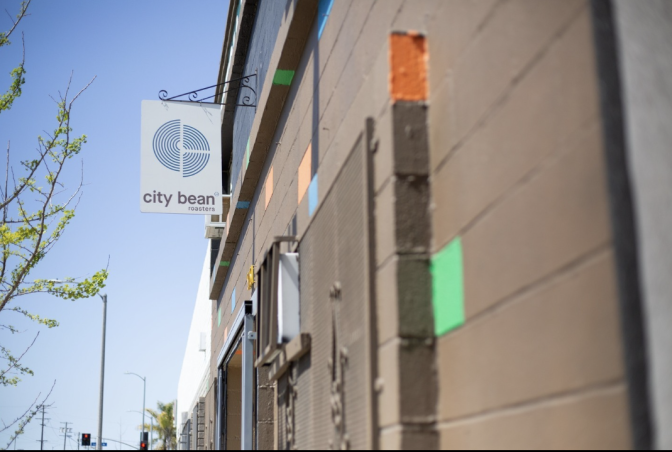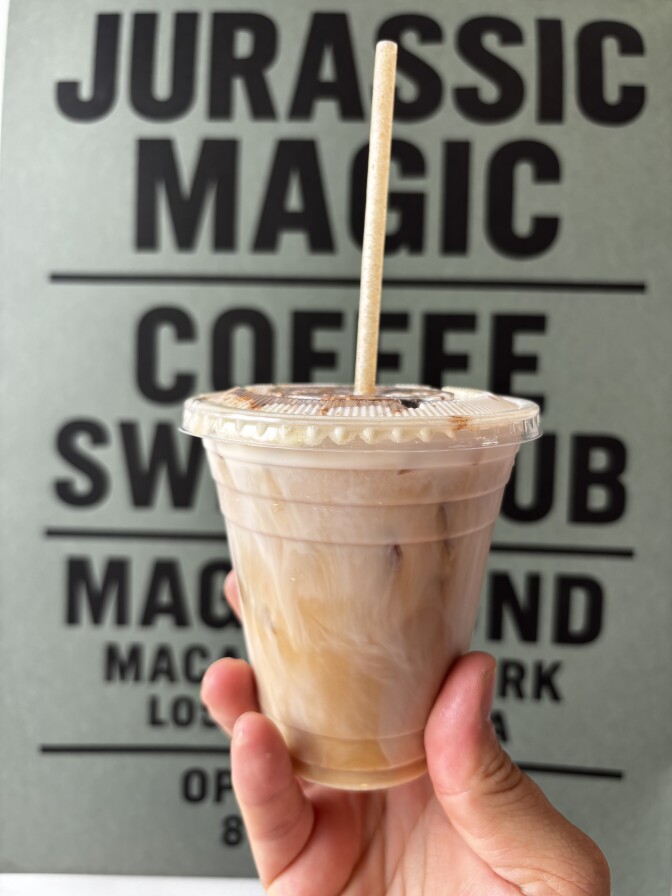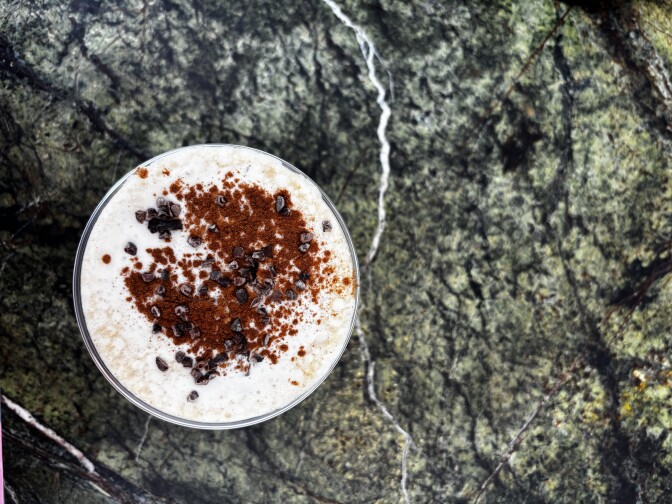It all started as many great debates do these days, over Instagram messages.
I was wrapping up dinner for an assignment and taking part in the great American pastime of scrolling through my phone while waiting for the check, when my colleague, Antonia Cereijido, posted on her Instagram stories, asking, "Is L.A. a coffee city?”
A caffeine-fueled feud ensues
Growing up in the L.A. region, coffee was synonymous with my upbringing. As far back as I can remember, my parents would dutifully prepare coffee using various methods, including drip machines and French presses, with beans they purchased from multiple sources. Sometimes, they would even order them by mail.
In 1997, when I was a teenager, Peet’s opened its first regional location in Pasadena on Lake Avenue, which is still there today. I have vivid memories of my parents making regular pilgrimages from our home in Whittier to Pasadena to buy coffee beans there in bulk. I can still recall the smell of freshly roasted beans that would fill the car on the way back home.
For me, L.A. has always been a coffee city. However, here’s what Antonia had to say: “I do not deny that you can drink delicious coffee in Los Angeles, I just don’t think the coffee scene in L.A. is unique to this town. I think L.A. is more well-known for other beverages, such as smoothies, than for its espressos or drip coffee. It doesn’t feel differentiated from other cities the way the coffee scene in Boston, Seattle, Miami, or New Orleans feels very specific to each location.”
To test our respective theories, we decided to take a field trip in Los Angeles to speak with some movers and shakers of the local coffee scene.
A coffee tree grows in West Adams
Our first stop was City Bean Coffee Roasters in West Adams, which has been roasting coffee in L.A. for more than 30 years, just as the coffee scene in L.A. began to bloom. It was started by Sol Salzer and his then-partner, James Marcotte. According to Salzer, specialty coffee was new to the region, and places like San Francisco, the Pacific Northwest and Chicago held the prize when it came to producing high-quality beans that were grown to highlight unique and complex flavor profiles. Salzer wanted to bring the same energy to Los Angeles.

What that meant was sourcing single-farm coffees and practicing single-cup brewing before terms like “single origin” and “pour over” became widely recognized within the industry. In its 30 years, City Bean has remained a vital player in the local coffee scene, with many aspiring coffee professionals coming to train at their roasting facility over the years.
“ This whole evolution of coffee in L.A. started to happen, and it was awesome to watch. It was so enthralling to see the craft develop in Los Angeles and define itself as a coffee market,” Salzer said.
Sometime later, other larger coffee purveyors, such as Portland-based Stumptown and Intelligentsia from Chicago, moved to Los Angeles, unveiling lavish roasting programs only to close after being unable to corner the market.

Today, coffee roasting and cafes are everywhere. Recently, Los Feliz welcomed its seventh coffee shop within a few block radius on busy Hillhurst Avenue. But beyond the larger chains like Starbucks, Coffee Bean and Tea Leaf, Philz, and Blue Bottle, as well as the smaller microchains Maru, Stereoscope, and Mad Lab Coffee Roasters, there are also plenty of other independent establishments that are immigrant-owned, serving Turkish, Korean, Vietnamese, Yemeni and Mexican populations.
An unscientific survey of Angelenos at a single coffee shop
To get the people’s take, Antonia and I visited Jurassic Magic, a neighborhood coffee spot in Mid-City, where we asked everyone the same question: “Is L.A. a coffee city?”
“A very mild yes,” said customer Darius Dudley. “I think the modern minimalist vibe that a lot of coffee shops go for, that is prevalent throughout L.A. — it's kind of lame.”
“I feel like L.A. is more of a coffee city than New York,” said Garrett Thunderbirt. “It's more cozy…more convenient.”

“I think that [L.A.] it doesn't really focus on quality coffee that much. More of like aesthetics,” said Jurassic Magic barista Annika Esplin. “I don't really think it is a coffee city, honestly.”
“L.A. is 100% a coffee city,” said Angela Ziemer, co-owner of Jurassic Magic. “You have your like super fast paced shops, ritualistic shops with like super small micro lots. There's just such a huge variety in the coffee space.”
“I think it's an iced coffee city. It's often so hot that you just need a refreshing beverage and also you need caffeine,” said customer Emerson Oertel.
Good to the last drop
So there you have it. I don’t know if either of us was convinced of the other's point of view. However, we both learned a great deal about what makes coffee culture and its cafe scene unique.
One aspect that we did find common ground on? That L.A. has a cold coffee scene. Due to the almost year-round warm weather, people here love to bask in the sunshine and enjoy cold, caffeinated beverages. We saw it at Jurassic Magic, we heard about it from the folks at City Bean Roasters … and we indulged in it ourselves. So cheers to that.













